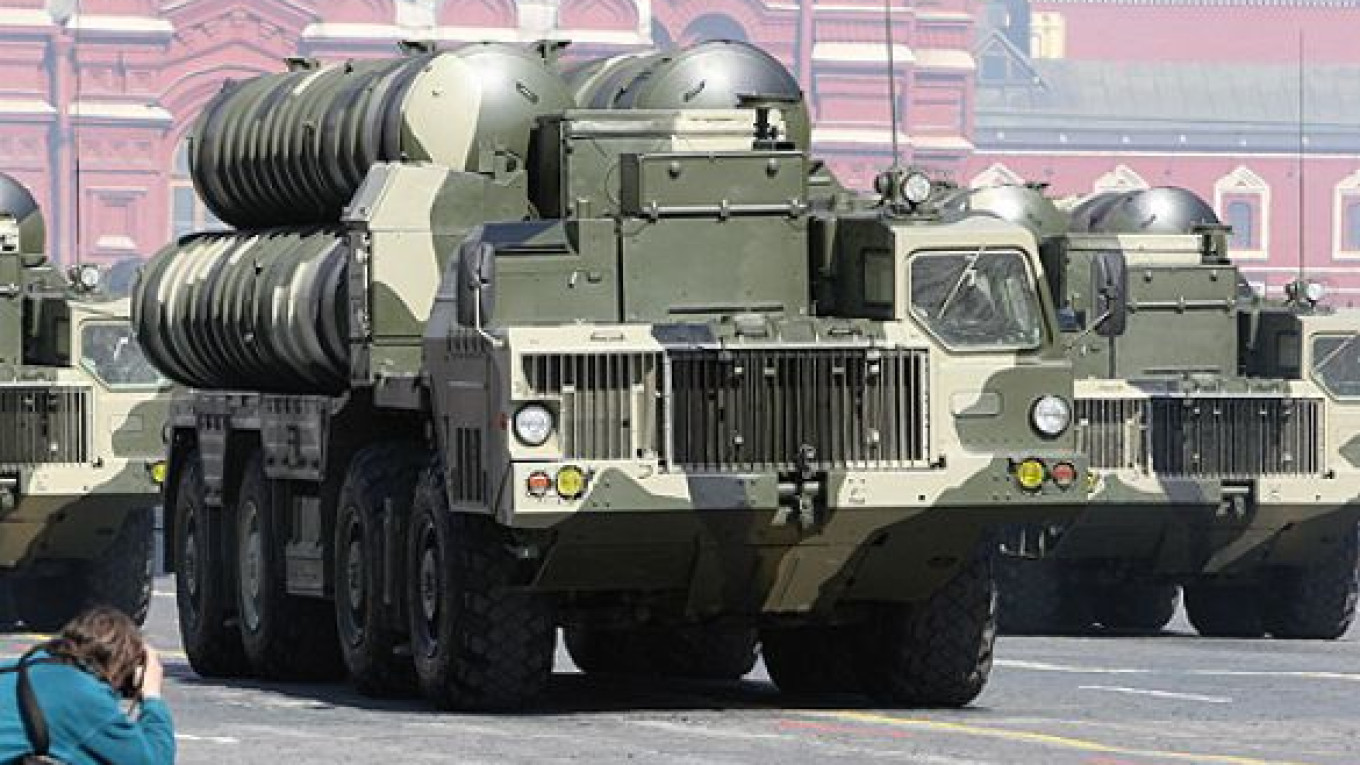The S-300 advanced air defense missile systems that Russia refused to deliver to Iran have now been completely dismantled and scrapped, the CEO of the company that built them said Thursday.
"The equipment that was to have been delivered to Iran is no more," Almaz-Antey Corporation's CEO Vladislav Menshchikov said. "We have dismantled it completely. Some elements, which could be used, have been used. Some have been scrapped."
Every contract is made for a particular client and cannot be adjusted to the requirements of another, he said.
"The makeup is different, the specifications are different, and the software is different," Menshchikov said.
Russia signed a deal in 2007 to provide Iran four S-300 batteries. Russia annulled the contract in 2010 due to concerns over its nuclear program. Iran filed a $4 billion lawsuit for compensation over the failed deal, which is pending review in an international arbitration court in Geneva.
Russian daily Vedomosti said in June, citing undisclosed Russian arms industry sources, that Russia had offered to provide Iran with Antei-2500 air defense systems, but the offer was never officially confirmed.
Anatoly Isaikin, the head of Russia's state-run arms export monopoly Rosoboronexport said in mid-August his agency had no plans to provide Iran with replacements for the S-300 missile defense systems that Russia had refused to deliver.
S-300 is a family of air defense missile systems capable of engaging aerial targets from helicopters to cruise and ballistic missiles. The more capable variants of the system would be capable of engaging aircraft far inside the airspace of neighboring states to Iran, according to analysts.
Israel, in particular, lobbied hard against the S-300 deal, according to Israeli media, over concerns that any Israeli air attack on Iran's nuclear facilities would be made far more dangerous if Tehran operated the system.
A Message from The Moscow Times:
Dear readers,
We are facing unprecedented challenges. Russia's Prosecutor General's Office has designated The Moscow Times as an "undesirable" organization, criminalizing our work and putting our staff at risk of prosecution. This follows our earlier unjust labeling as a "foreign agent."
These actions are direct attempts to silence independent journalism in Russia. The authorities claim our work "discredits the decisions of the Russian leadership." We see things differently: we strive to provide accurate, unbiased reporting on Russia.
We, the journalists of The Moscow Times, refuse to be silenced. But to continue our work, we need your help.
Your support, no matter how small, makes a world of difference. If you can, please support us monthly starting from just $2. It's quick to set up, and every contribution makes a significant impact.
By supporting The Moscow Times, you're defending open, independent journalism in the face of repression. Thank you for standing with us.
Remind me later.


